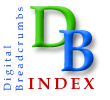
| Search |
 |
||||||||
| Words | Images | Audio | Scholar | ||||||||
|
||||||||
|
We feel that our preliminary research contributes one key finding that future researchers (ourselves included) will find useful: that the nature of searching--the social and affective elements of the search process--is clearly being altered in significant ways by the merging of the World Wide Web as a general information source with the information systems that are designed and maintained by the academic community. Google is an interface that allows a user both to find specific information and to experience an element of surprise. A researcher using Google never knows exactly what items will be returned by various search terms, and he or she must navigate a multitude of links, some of which may be clearly unrelated, while others must be investigated to determine their value. From a professional librarian or information systems perspective, characterized by the goal of finding a single piece of useful information as quickly as possible, these extraneous and ill-matched materials can be the signs of an unsuccessful search attempt. But the experience of Google has been taken up by researchers, both inside and outside of academia, in a way that is reminiscent of William Gibson's (1984) Net: Users actually enjoy the wash of information flowing over them as they browse, clicking on links sometimes simply to see where they go--and at other times finding bits of data and then forging new trails to expand their knowledge. As John Unsworth argued in his keynote address at the 2004 Conference of the Canadian Symposium on Text Analysis, "It is not certainty but uncertainty and surprise that is a sign of value and discovery in the humanities." The responses of our participants indicate that the particular kind of uncertainty afforded by "googling" is often seen as one of the productive tools offered by these kinds of search engines. The responses of our participants also suggest that users may be developing a different sense of conceptual space regarding their search practices, becoming more adept at using multiple search engines and databases and connecting information that comes from a variety of sources, within and outside of academia. Researchers, in other words, are becoming adept at navigating information in ways that are not necessarily compatible with the traditional conception of knowledge gathering as it is understood and applied in various academic disciplines. If we want to engage our students in the process of knowledge-making in productive ways, and if we want to provide them with resources that will help them create richly textured knowledge (as opposed to surface information), then we must seek to understand how these changing patterns of behavior are altering our processes of becoming informed. We must also take care to understand that these altered processes are not necessarily less (or more) effective than traditional methods. Without question, however, they are affecting the role of the academic library as the sole arbiter of "scholarly" knowledge. As such these new search habits are worthy of our sustained interest and our open-minded consideration. As teachers of writing and research, moreover, we cannot continue to assume that students are learning successful search strategies through other academic resources. Rather, we must assume that they are developing strategies from a variety of interactions with digital spaces. To confine ourselves to the lament that students are not researching in traditional ways would neglect the opportunity to connect research practices from within and outside of academic institutions as well as our obligation to help students develop and build on successful practices that will sustain them in a variety of research situations. |